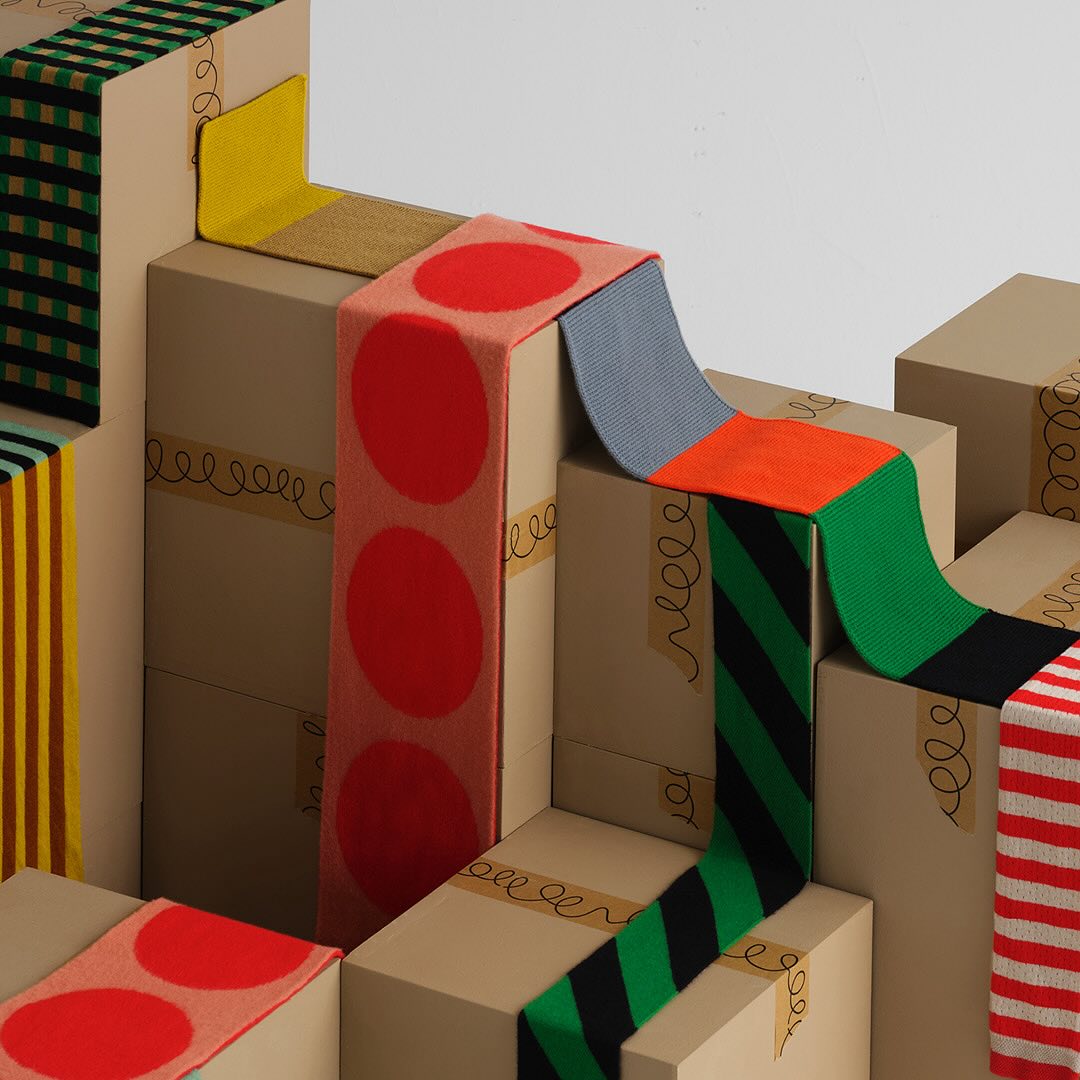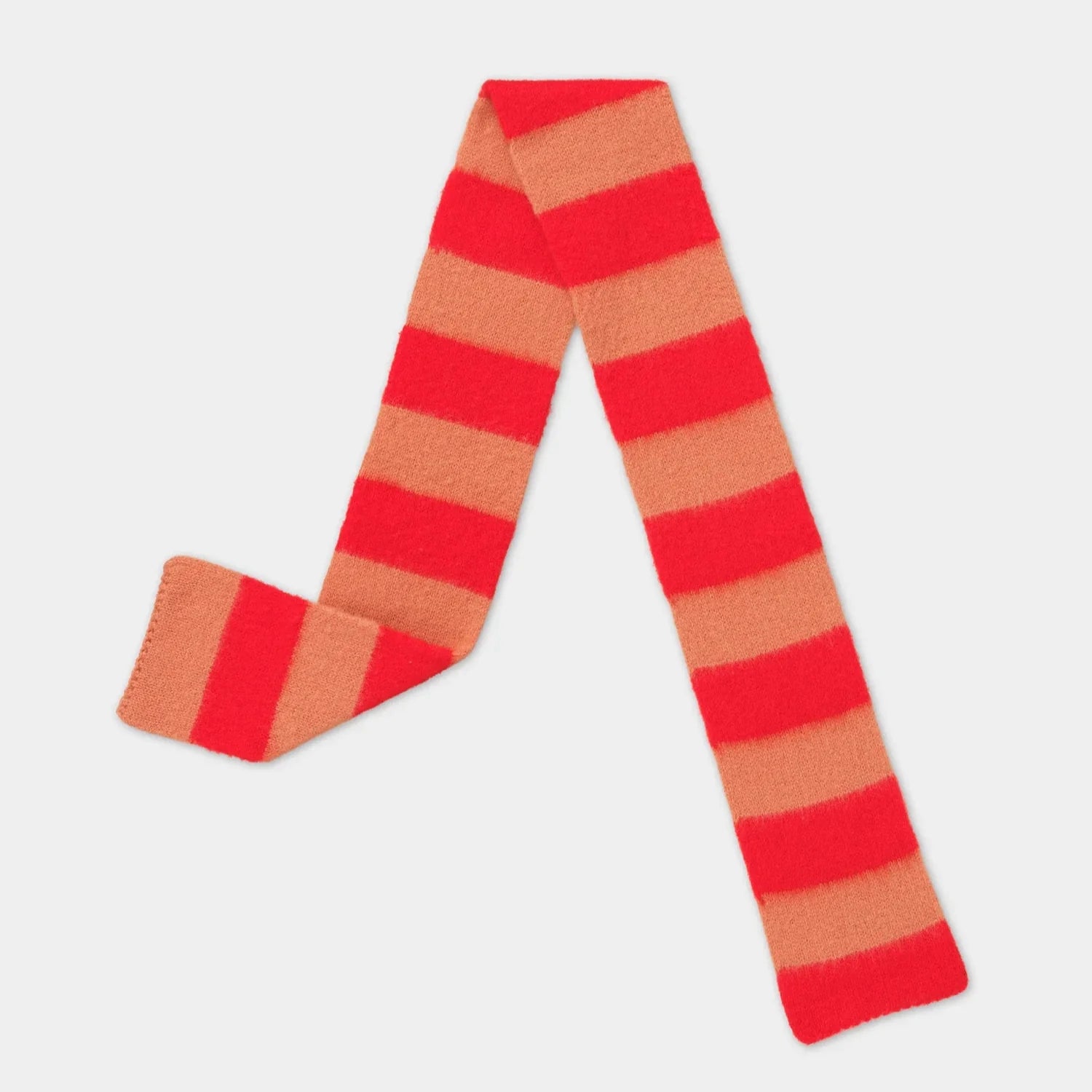aboy Bojang grew up in The Gambia, in West Africa. He was not able to finish school as his family relied on him as its primary breadwinner. At the age of thirteen he began working at his uncle’s tailor shop. There he mastered the skill of sewing, and developed a keen eye for colour and design. These skills would prove invaluable when he set up his own design company. But that would be thousands of miles away, many years later, and after a series of traumatic events.
Growing up under a long and brutal dictatorship, by the age of 18 Paboy felt, like many others, that he had to leave his country. He explains to me, ‘There was a year when everything was out of control in Gambia, lots of people were leaving. I remember one of my neighbours saying to me, "There’s nothing here, you have to find a future somewhere else." So I left.’
Paboy spent several months crossing the desert. ‘It was one of the worst experiences I had in my whole, entire life. I thought maybe everyone was going to die on the journey.’ On one occasion, after two nights without food or water Paboy and his fellow refugees were rescued. ‘Everyone was lying on the ground, and we saw this big, big lorry coming towards us. In that moment I had no energy to see exactly what was happening around me, but I remember they put water on our heads, picked us up, and then took us to a small town in the desert.’
Paboy’s punishing journey was far from over. Often he had no choice but to sleep on the streets by night and search for money by day. He explains, ‘Everywhere you go you need to find money; if you do not pay you will not cross.’ As he was making his way to Tripoli he was kidnapped and imprisoned by armed militia. ‘A lot of people paid money, but I couldn't pay. They call your family on video-call to ask them to give money, if not they will kill you.’ He goes on, ‘I told told them whilst they were torturing me that my family have no money, so it does not make sense to call them and make them worry about me. I’d rather die than my mum see me whilst they were torturing me. So I told them, "I want to die."'
Paboy and a large group of other hostages were kept captive in a decaying building. They noticed the roof was not strong, as rain would often leak in; this gave them the idea for a possible escape. One night they broke open the roof. ‘People started jumping and running and crying. I was just running and running, but I didn't know where I was going.
'Eventually I met this nice old dad, he said, "Where are you coming from? What's going on?" "I’m not from here," I said, "I'm from the Gambia, I want to go back." I was scared he was going to take me to the police. It was really terrifying. He said to me, "I'm going to help you," but I wasn’t sure if he would. He brought me food. I ate. Then he brought these boots and asked me to wear them. They were perfect for my feet.’

Paboy eventually ended up in Tripoli, the last stop for many migrants before trying to cross the Mediterranean to Europe. His attempt at crossing was in a dinghy, crammed in with many other refugees willing to make the dangerous journey to find safety. They had nearly finished travelling up the Libyan coast, when they realised there was a puncture in one side of the boat. ‘The water was coming in. People were wondering where the water was coming from. People got really scared.’ The opposite side of the boat to where Paboy was sitting eventually collapsed causing many of the refugees to fall in to the sea. ‘You are seeing people dying and you are helpless. I have never seen a scene like it in my whole entire life. I was one of the people that got lucky, and we got rescued.’
Upon arriving in Italy, Paboy was placed in a refugee centre, packed into an out-of-business wedding venue along with many other migrants. The conditions there were painfully poor, and the centre was eventually shut down, the owners investigated for corruption. This lead Paboy to the heart of Naples, where he finally felt somewhat at home, as he found consolation in its multicultural markets and buoyant nightlife. It was outside the Afrobeat club, Teranga, that Paboy met Sophia Seymour, a British journalist, who offered him a room in her apartment.
Paboy had found work at a majolica workshop making tiles and vases. However, due to the bureaucracy of the Italian immigration system he lost his job there; though he received a document that enabled him to legally stay in Italy, he was not able to receive a valid work permit. He explains to me, ‘Most migrants living here don't have documents and then they can’t get work. You end up going insane.’ Soon after losing his job, coronavirus hit, and during lockdown Paboy found himself at a loss as to what to do. Sophia encouraged him to try something new, but he was initially reluctant. '"What do you expect me to do?" I said, "What skills do I have?" She said to me, "Anything can happen."'

One day Paboy found a sewing machine and some leftover fabrics under Sophia’s bed. This sparked in him a renewed interest in working with colour and design, an interest that would eventually lead to the creation of In Casa by Paboy - a cushion line that is now gaining worldwide recognition from the likes of Vogue, for its joyous colours and signature pleated edges. As the brand grows, Paboy continues to lovingly sew every single cushion cover by hand.
‘I love colour, all colours,’ he insists, ‘and the fact that the cushions bring joy to other people makes me so happy.’ The bright, contrasting sweetshop colours which run through Paboy’s collection represent a coming together of the vibrant colours of his childhood in Gambia and the old architecture of Naples with its intense reds and yellows. Paboy hopes his cushions will continue to bring happiness to individual buyers across the globe and that he will soon be able to wholesale to shops like The Longship. But his long term aspiration is for his business to expand so that he can employ other migrants living in Naples. ‘I want migrants to live a better life. I know how they are feeling, I understand them and I will do everything possible to help them if I have the power.’ He goes on, ‘I love my fellow migrants, those with no documents, no nothing. I believe we all have to be treated equally, and with dignity and respect.’

Cara McLean
Photos courtesy of Paboy Bojang





